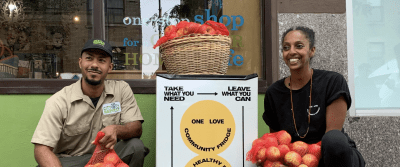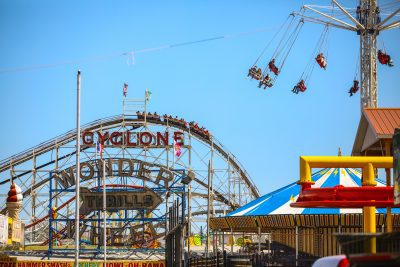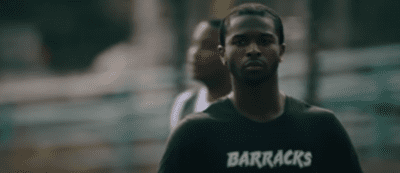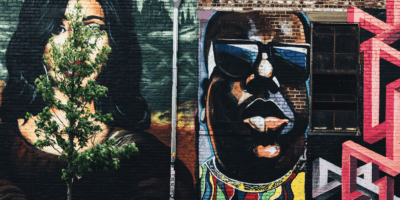Photo illustration by Johansen Peralta
Antonio Reynoso, ‘Brooklyn’s chief promoter,’ breaks down his vision for the borough
Six months into the gig, the Brooklyn Borough President joins 'Brooklyn Magazine: The Podcast' to discuss his 'comprehensive plan'
Like what you’re hearing? Subscribe to us at iTunes, check us out on Spotify and hear us on Google, Amazon, Stitcher and TuneIn. This is our RSS feed. Tell a friend!
It’s been just over six months since Antonio Reynoso took over as Brooklyn Borough President, so it felt like an ideal moment to invite him to join us on “Brooklyn Magazine: The Podcast.”
Reynoso, 39, hasn’t made a lot of noise since assuming his new office, in large part due to a lengthy transition process—made longer because his predecessor, Mayor Eric Adams, took the bulk of the office’s staff with him to City Hall.
Last month, though, Reynoso—a progressive local pol who had most recently served eight years as a city council member repping Bushwick, Williamsburg and Ridgewood, Queens—released a sweeping transition report which outlines his ambitions for his borough presidency.
In our wide-ranging conversation, Reynoso walks us through his childhood and political awakening, through his years in city council, and his goals for his current job.
“I really want to do a lot of that chief promoter work,” he says. “I want people to know that Brooklyn is the center of the universe. It is the best borough in all of the city of New York. And that we have the best pizza, the best hot dogs the best Chinese food, the best beaches.”
But beyond being a borough cheerleader, Reynoso is also a self-described policy nerd. In his transition report, for example, he details a “comprehensive plan” for Brooklyn that lays out ideas for alleviating the borough’s housing crisis, reforming community boards and improving the borough’s maternal mortality rates, among other policy initiatives.
“Considering the current climate, politically, that exists, we will not get out of this housing crisis unless there is either a significant investment in the subsidization of housing, which I don’t think is possible under the current political structure from the federal, state and city government,” he says on the podcast this week. “Or we’re going to have to build the heck out of the city so that we start adding to the housing stock in order to bring down rents.”
But. It should be noted that the borough president, while possessing a pretty big soapbox, does not actually have a ton of statutory power.
“It’s a challenge,” he says on the podcast. “This job, for all intents and purposes, its charter mandated responsibilities fall in line with being a chief promoter more than a legislator. But because of the bully pulpit and the position itself of representing the largest borough of the city it gives you a lot of opportunity to make a case, policy wise, that gets listened to.”
‘I didn’t know how poor I was’
Reynoso grew up in Williamsburg (very different Williamsburg from the one we know today) the first-generation American child of Dominican immigrant parents.
“There were certain streets you wouldn’t walk down in Williamsburg where [nowadays] people hang out and drink mimosas on a Sunday afternoon. A lot changed,” he says. “There wasn’t a government subsidy that existed in our city, in our government, that my parents didn’t need to take advantage of just to give us a fair shot … While I was growing up I didn’t know how poor I was.”
With early plans to become a teacher, Reynoso was inspired to get into politics while in college. Later, as city councilor, he pushed for police and sanitation reform among a lot of other initiatives—around transportation, zoning, women’s health, Rikers Island and more.
His predecessor in the borough president role is of course now the mayor, a former cop and more centrist Democrat with whom Reynoso doesn’t always see eye-to-eye, especially on issues pertaining to policing.
“This mayor ran on doing exactly what he’s doing,” he says. “I keep trying to communicate to folks that the safest neighborhoods in the city are the ones with the least amount of cops. What they have is high quality education, housing, health care, parks, transportation. Those are the safest places, not the ones with the most cops.”
Our conversation also touches on corrosive infighting in the Democratic Party at the county level, Former Mayor Bill de Blasio’s legacy, the city’s “garbage culture,” the ideal Brookly day for a first-time tourist … and, of course, a completely silly pop quiz.
Check out this episode of “Brooklyn Magazine: The Podcast” for more. Subscribe and listen wherever you get your podcasts.
You might also like 


























